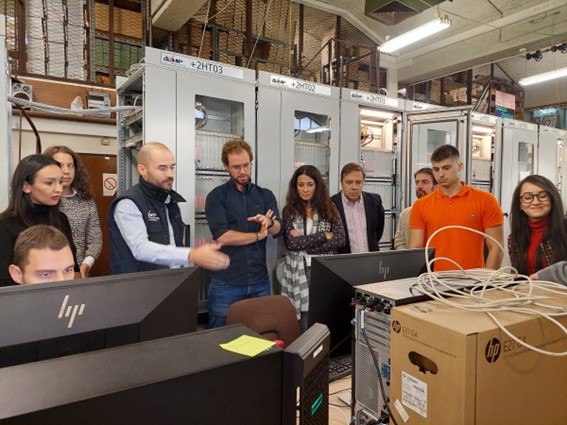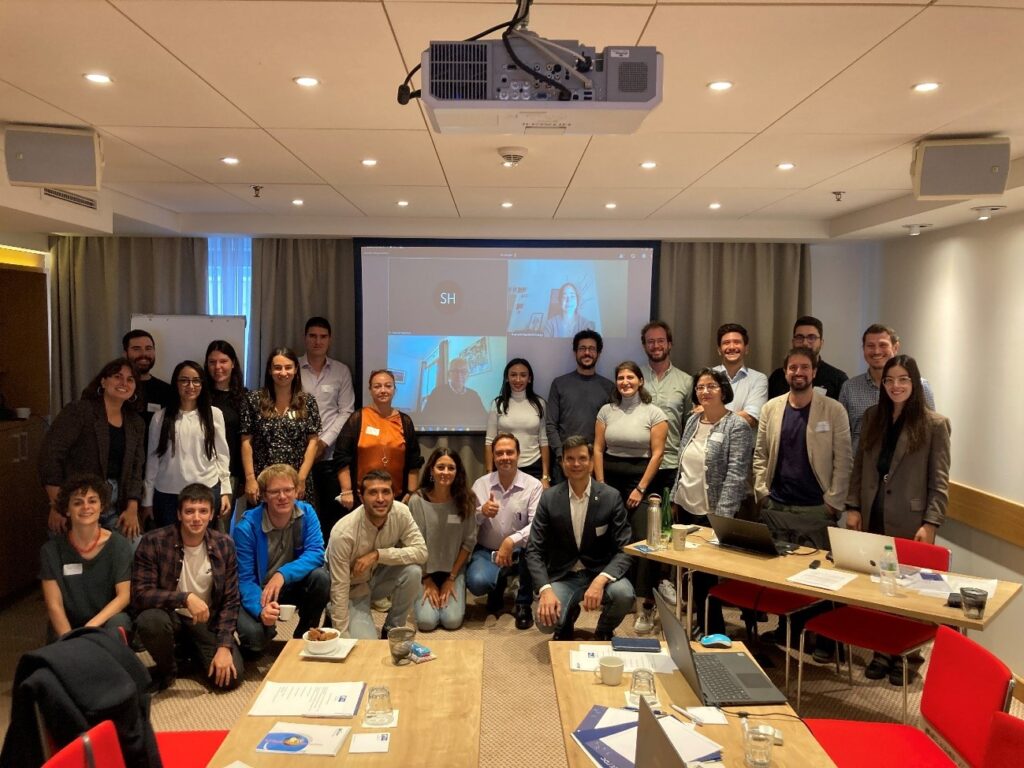Last September 19th and 20th, the NEON’s General Assembly was held in Belgrade at the headquarters of Mihailo Pupin Institute. This was the second in-person meeting after the kick-off in Madrid, and it was very inspiring to meet and discuss the work packages and the project progress with the Team.
For the NEON’s Team, it was a very exiting experience to visit the MPI facilities. Valentina Janev and Nikola Tomasevic guided the consortium Partners into the IMP Idvorski laboratory to test the electromagnetic compatibility of some electronic products.

The news about this General Assembly has been also published in the Institute Mihailo Pupin website: The NEON General Assembly Meeting at the Institute Mihajlo Pupin – Institute Mihajlo Pupin
The review of the projects’ work packages and their progress allowed to monitor and forecast the work plan and the next steps at technical and administrative level.
In work package 1, Lilia Corbeau from Engie showed us the work done on the co-creation of integrated energy services, which has served as a basis for continuing the project.
In work package 2, led by SIF’s, Alessandro Asmundo, presented the progress on contractual and financial aspects of cross-services integration.
In work package 3, led by Mihailo Pupin Institute, Kiriaki Psara (FOSS), Laura Zabala (R2M), Marko Batik, Baptiste Schubnel (CSEM), and Valentina Janev explained the work done and the action plan for the next months on the ICT platform for the efficient operation of buildings and the provision of Demand Response flexibility.
Gridabiliy, the partner leading work package 4, represented by Miquel de la Mano, described the action plan on the innovative measurement and verification methodology and service remuneration mechanisms to be implemented in the pilots.
From Albedo, Michel Meunier presented all the effort that will be needed regarding the NEON’s impact assessment and ethical considerations in the pilots.
In work package 6, led by Comet Global Innovation, Cintia Escandell explained the actions carried out in communication and the importance of all partners working together to make the project visible, and she also suggested and discussed with the partners, any potential actions to make a more effective communication with the external stakeholders.
Finally, Samuel Hoefman introduced the project from the management point of view, the actions to be carried out, the updates in the project results, the first conclusions of preliminary results of the project and the administrative work to be performed in order to report the first year activities to the European Commission.

Undoubtedly two days of intense work, but it has been worth the effort. The project continues to move forward with great enthusiasm from the partners.